The research stage of novel writing can be time-consuming and challenging, but is essential if you want to write a believable and immersive historical story. This stage of the writing process doesn’t have to be daunting! Take a break from conventional fact-finding methods, and take a look at these digital resources that can help you on your research journey.
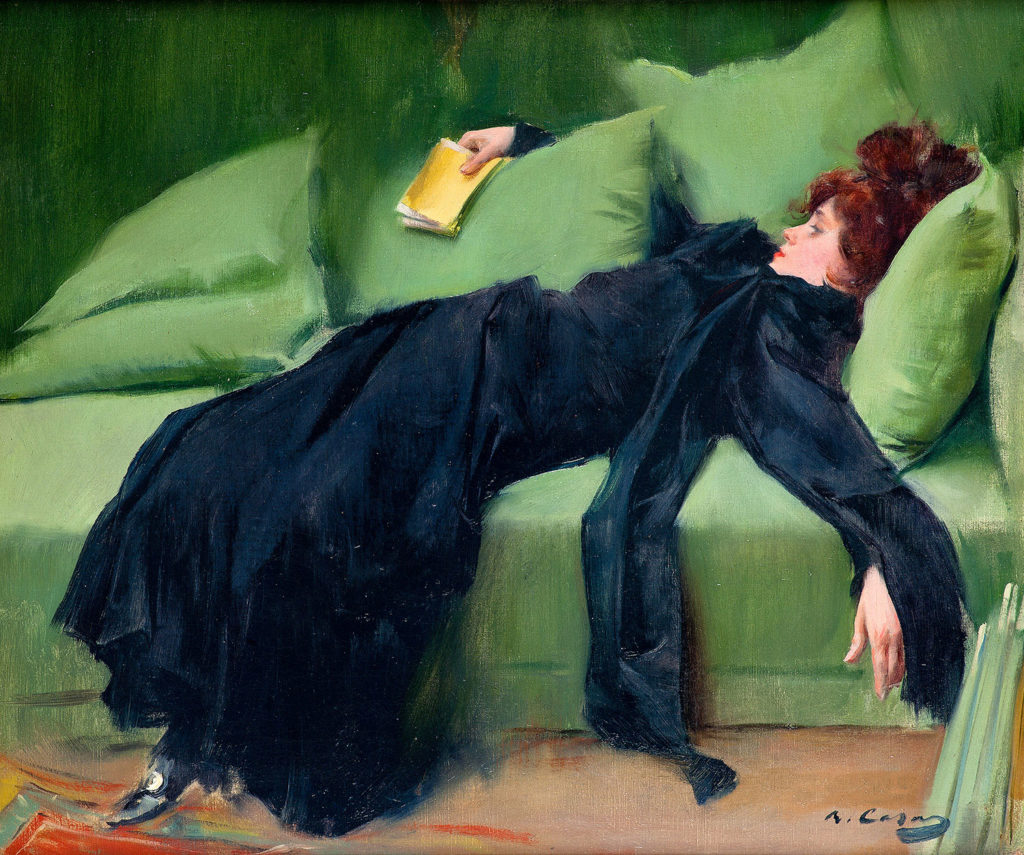
This post is a part of #CLiCCreative, a new project at the University of Birmingham that demonstrates how the CLiC Web App can serve as both a creative resource and an innovative research tool for writers. Previous #CLiCCreative posts by Dr Rosalind White are available here. Make sure to bookmark this page for future reference if you found it useful! If you’re looking for further writing advice and support, stay tuned for future #CLiCCreative content.
As you conduct your research, keep the following questions in mind:
- What are your research goals? Try to be as precise as possible. What exactly is it you are looking for? Do you want to find out about the fashions and fads your character might have followed? Or are you looking for the periodicals they might have perused or the artists or authors they would have been partial to? What details do you need to truly embed your story in your chosen epoch?
- How are you keeping track of your research? Have you organised your findings so that you can swiftly find the information you need, when you need it? Here we offer some help with a list of useful digital resources.
- How are you going to apply or incorporate the information you’ve gathered into your story? Are you working with a writing planner, or aiming for a particular time schedule? We’ve got some beautiful planners you can download here.
University-based projects:
1. The CLiC Web App
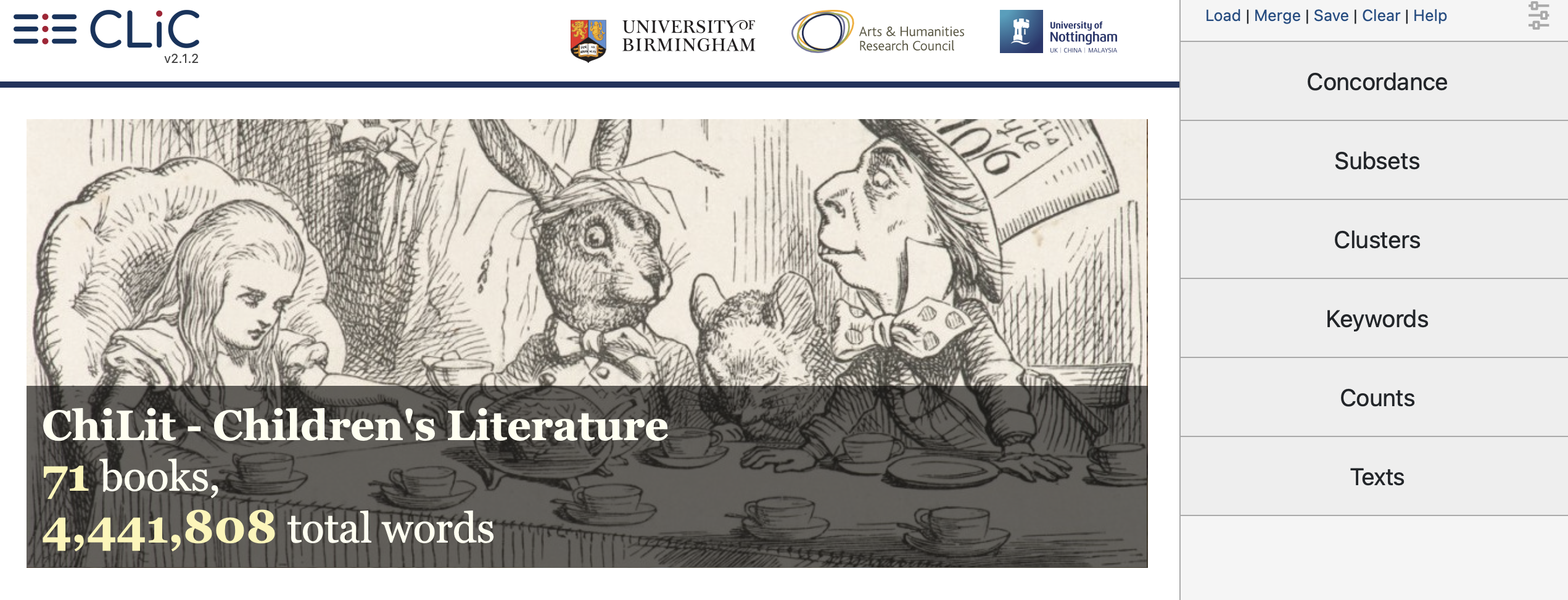
url: clic.bham.ac.uk access: FREE!
The CLiC Web App is an open-access tool developed as part of CLiC Dickens (a collaborative project between the University of Birmingham and the University of Nottingham). CLiC facilitates computer-assisted textual analysis of nineteenth-century literature. Our parallel project, #CLiCCreative demonstrates how CLiC can serve as both a creative resource and an innovative research tool for writers. Our app can be used to cross-reference or verify historical details, saving time and energy, as well as help writers immerse themselves in the particulars of their preferred period.
For more information on how to use CLiC see this quick-start guide, as well as our ongoing series of #CLiCCreative blog posts available here.
2. Curatr: A Platform for Semantic Analysis and Curation of Historical Literary Texts

url: curatr.ucd.ie access: via library login.
Curatr is an online platform which provides access to the British Library Digital Collection, corresponding to over thirty-five thousand unique titles, both fiction and non-fiction, from 1700 to 1899. It was developed by the ERC-funded VICTEUR project. The system includes a searchable index on the equivalent of over 12 million individual pages of text, which can be searched and sorted by author, title, year, and the text of the volumes themselves. Click here for videos on the use and functionality of Curatr.
3. Kent Maps Online

url: kent-maps.online access: FREE!
Kent Maps Online is the product of a collaboration between JSTOR Labs and a team led by Carolyn Oulton, and Michelle Crowther, Canterbury Christ Church University.
The site provides a set of themed essays about Kent, a county in South East England. Kent has a rich history and provided inspiration for a number of writers and artists including Charles Dickens, who is featured in the early essays available on the site.
4. The Map of Victorian Literary Sociability
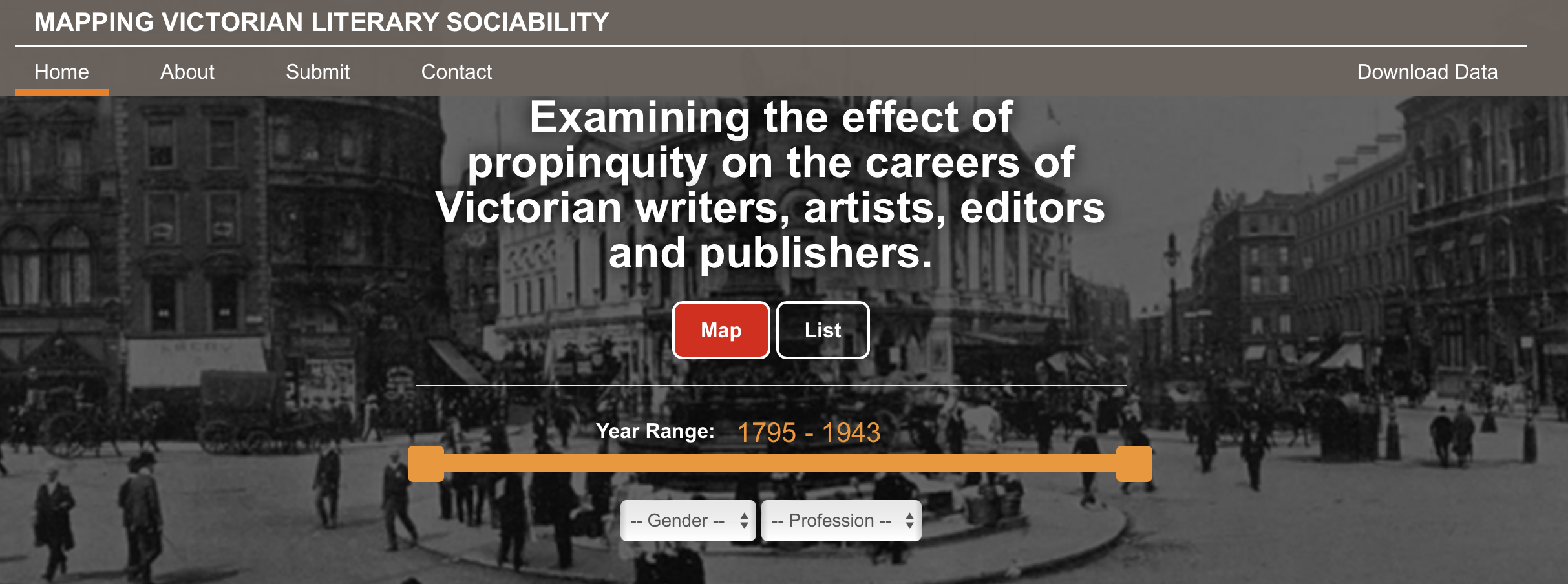
url: victorians.ucalgary.ca access: FREE!
The Map of Victorian Literary Sociability is an open-access tool (created by researchers at the University of Calgary) that seeks to map the spatial networks of Victorian writers, artists, editors and publishers. The map geo-references the residences of these cultural figures in order to examine how propinquity may have facilitated careers and collaboration in nineteenth-century Britain.
5. The Digital Victorian Periodical Poetry Project
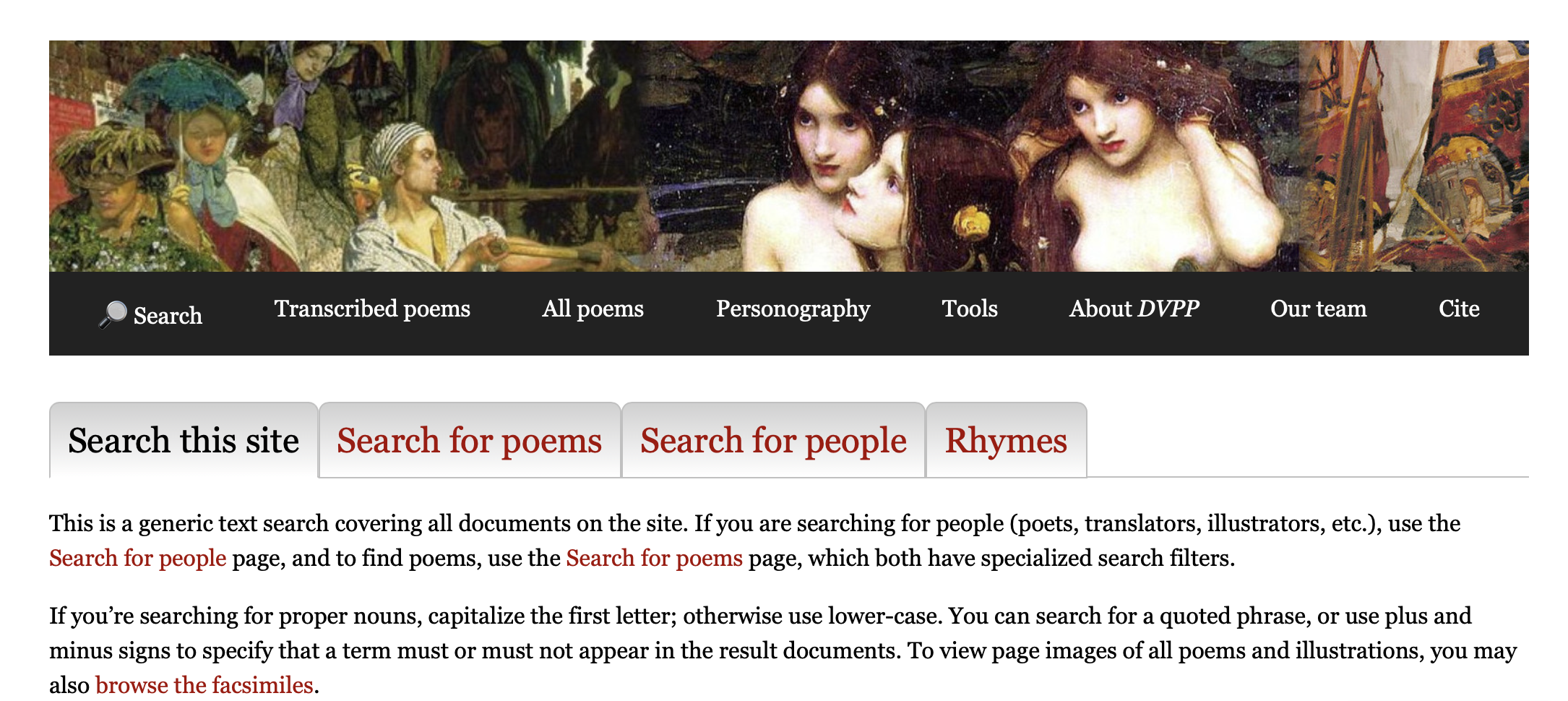
url: dvpp.uvic.ca access: FREE!
Digital Victorian Periodical Poetry explores the poetry most read in the long Victorian period: poems published in periodicals, magazines, and newspapers. Their collection currently contains 15661 poems dating from 1817 to 1901. Dr Alison Chapman (Professor of English at the University of Victoria) is Principal Investigator and has overall editorial responsibility.
DVPP offers three inter-related projects: a digital index of all periodical poems and poetry translations in English across full runs of 21 periodicals, magazines, and newspapers; a digital edition of representative periodical poetry, encoded for poetic and material features; a personography based on poets, translators, and illustrators. They give a variety of ways to access the material: search pages, a facsimile viewer to browse poem images, indices of transcribed poems and of all poems in the corpus, and hyperlinks between material allowing for easy cross-referencing throughout the site.
6. Populations Past
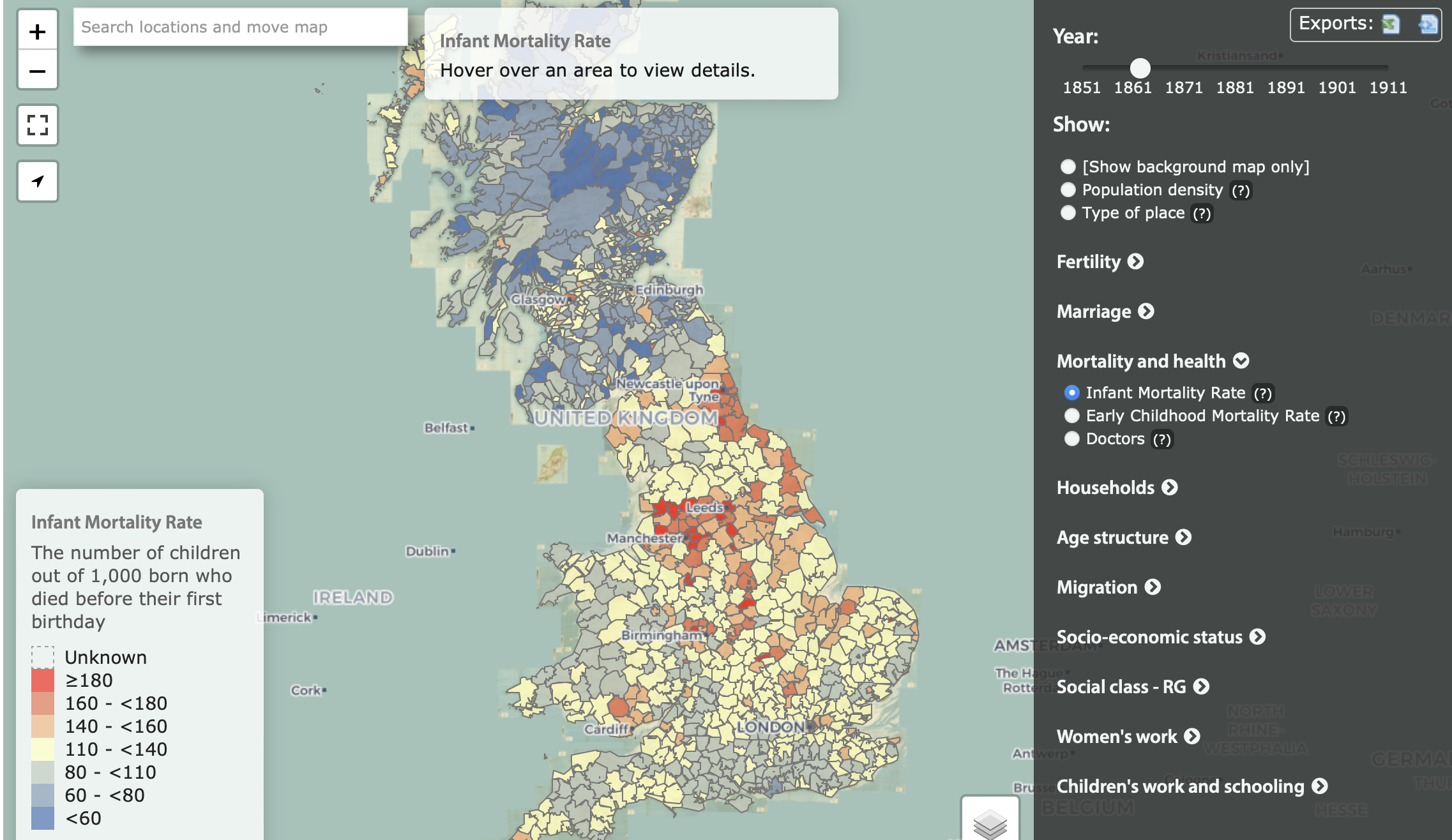
url: populationspast.org access: FREE!
Populations Past is an online interactive Atlas of Victorian and Edwardian Population. You can explore regional and local variations in a range of demographic and household indicators and how these changed between 1851 and 1911, zoom in to focus on particular areas, compare two maps side-by-side, and download the underlying data which has been calculated from individual-level census data.
Further digital resources:
1. The Internet Archive
url: archive.org access: FREE!

The Internet Archive is a non-profit library of millions of free books, movies, software, music, websites, and more. It is a great resource for finding information on a wide variety of topics. You can access a large collection of nineteenth-century books, including both fiction and nonfiction.
2. The British Newspaper Archive
url: britishnewspaperarchive.co.uk access: register for free trial or library access at the British Library.
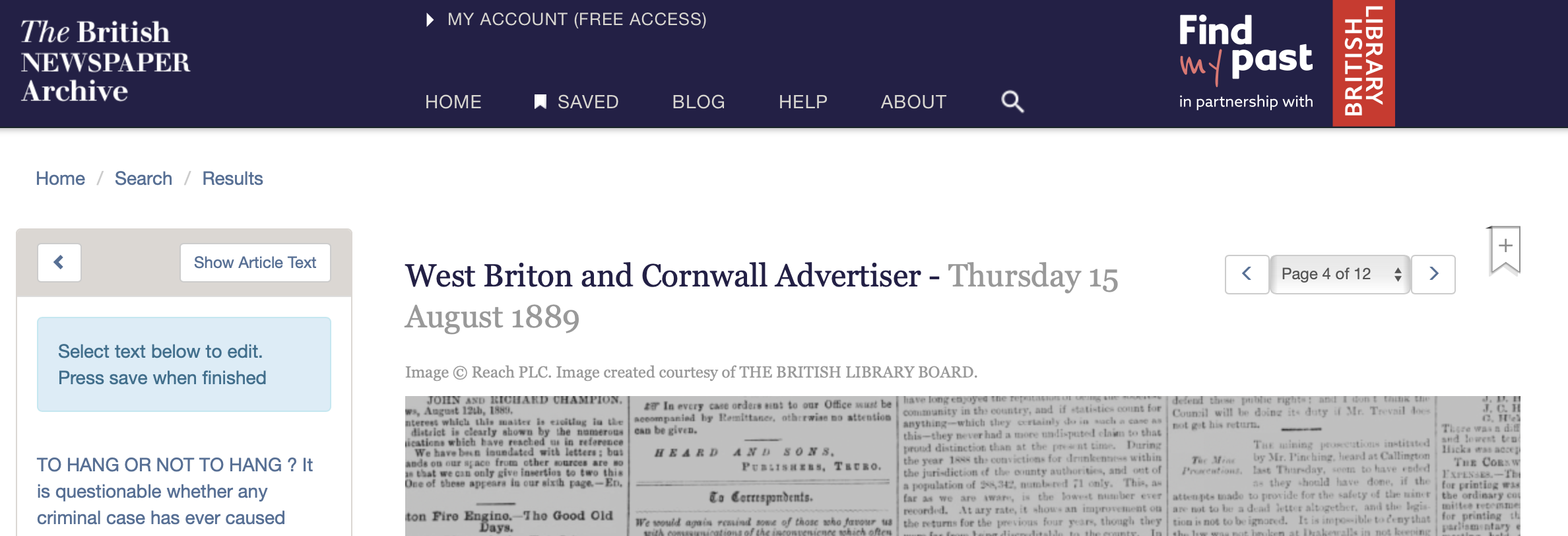
The British Newspaper Archive is an online database of over 40 million pages of historical British and Irish newspapers, dating back to the 17th century. The archive can be searched by keyword, date, title, or location and users can also browse by region or newspaper title.
3. The OED (Oxford English Dictionary)
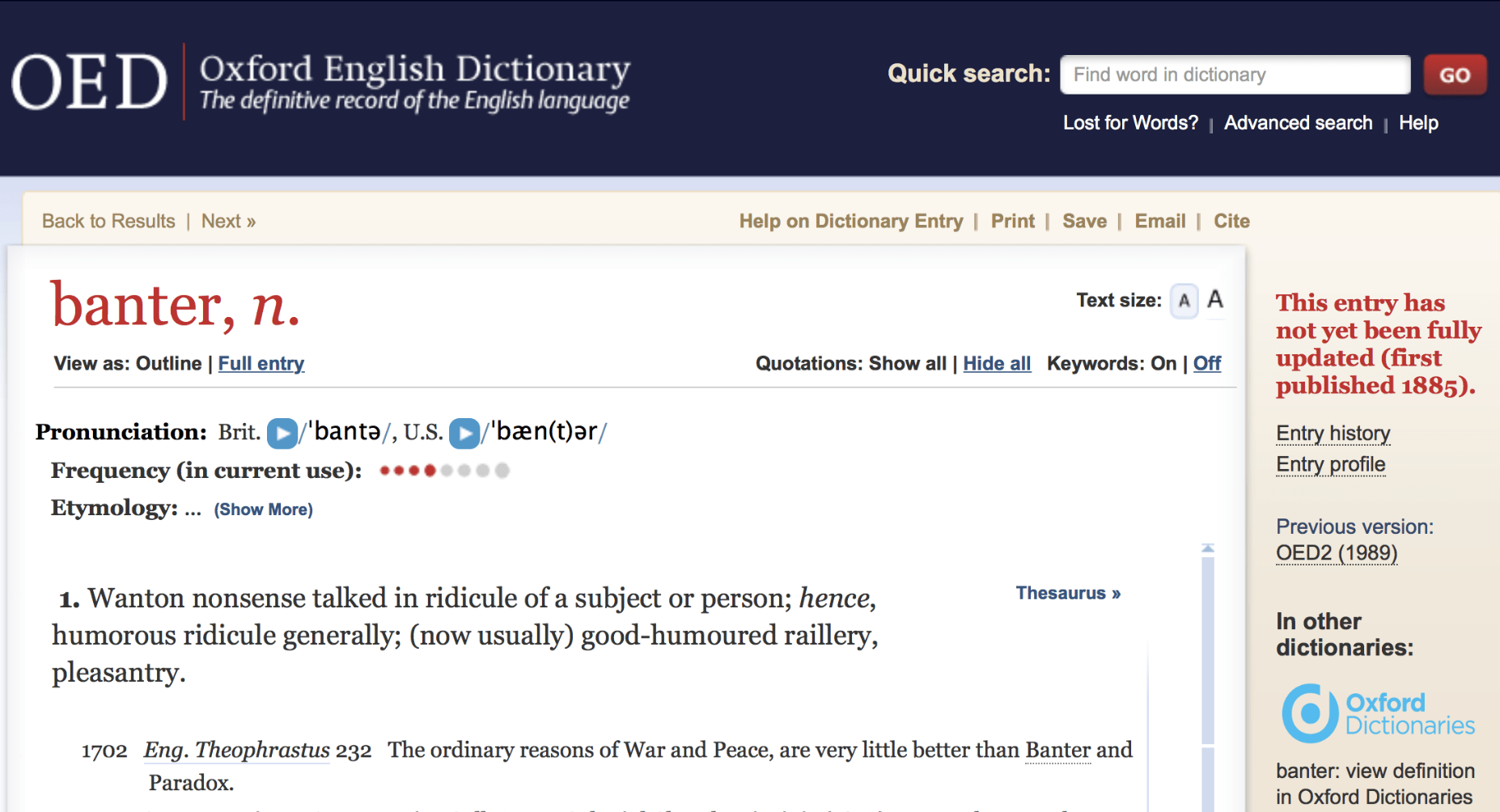
url: oed.com access: via public library or institutional login.
The Oxford English Dictionary (OED) is a historical dictionary of the English language, published by Oxford University Press. It is the most comprehensive dictionary of the English language, with over 600,000 words and phrases. You can use the OED to do the following:
- Traces the history of each word back to its earliest recorded use.
- Look at detailed information on the meaning, pronunciation, and etymology of each word.
- View quotations from a wide range of sources to find examples of how a word has been used in the past. or compare different senses of a word.
4. Oxford Bibliographies Online
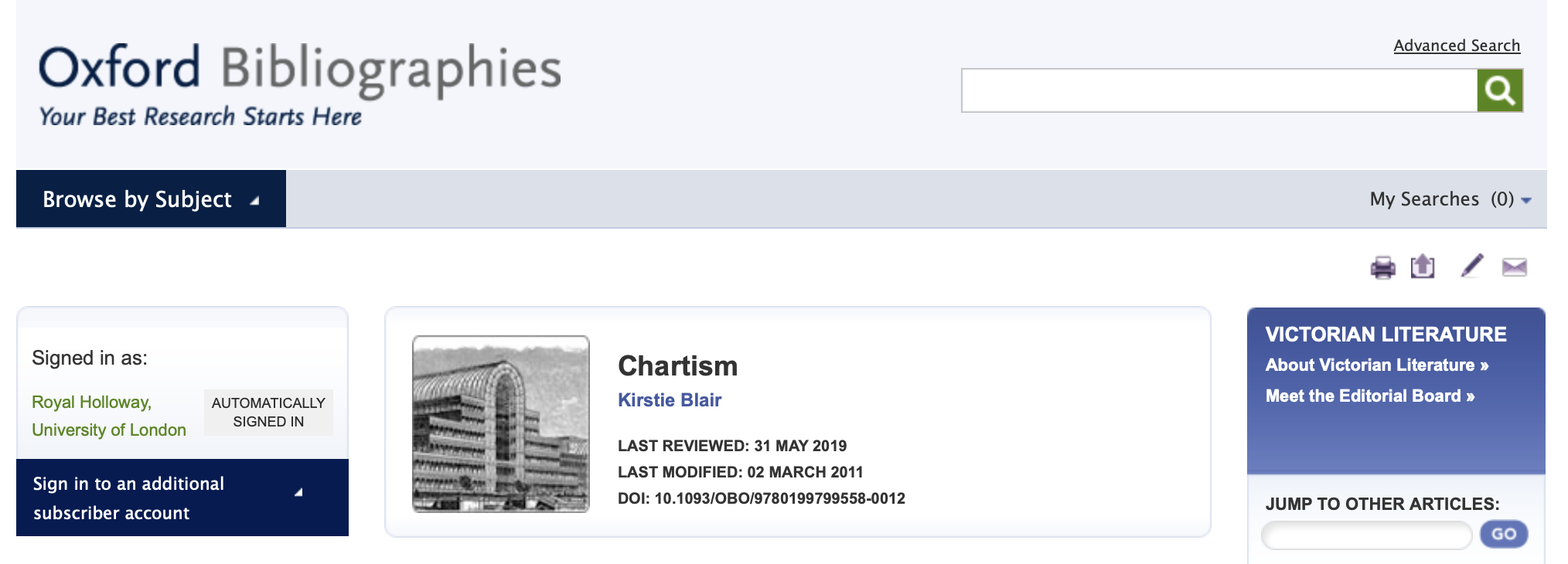
url: oxfordbibliographies.com access: via public library or institutional login.
Oxford Bibliographies is a web-based compendium of peer-reviewed annotated bibliographies and short encyclopaedia entries maintained by Oxford University Press. It has extensive entries covering the Victorian period written by a leading scholar in the field.
It includes:
- Entries about specific authors (from Alfred Tennyson to William Morris).
- Entries devoted to specific topics within culture and society (from atheism to visual culture.
- Entries on specific genres of literature (from autobiography to travel writing.
- Entries on specific themes or movements (from aestheticism to socialism)
5. The ODNB (Oxford Dictionary of National Biography)
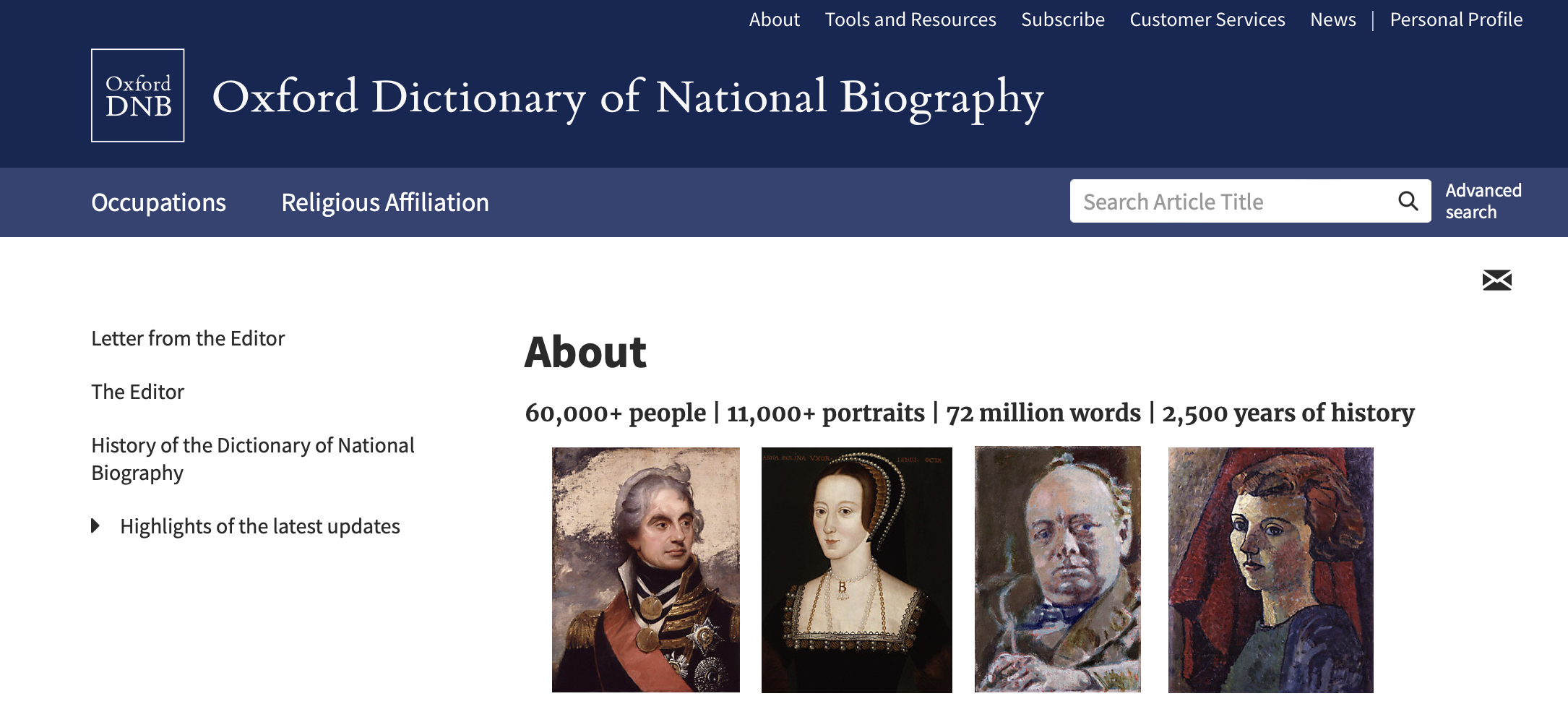
url: oxforddnb.com access: via public library or institutional login.
The Oxford Dictionary of National Biography is the national record of over 60,000 men and women who shaped the history of the British Isles and of Britons worldwide, from the ‘earliest times’ to the 21st century.
6. The Old Bailey Online

url: oldbaileyonline.org access: limited free access, see here.
The Old Bailey Online is a fully searchable edition of the largest body of texts detailing the lives of non-elite people ever published, containing 197,745 criminal trials held at London’s central criminal court.
You may find the Getting Started and Guide to Searching videos and tutorials helpful.
7. British and Irish Women’s Letters and Diaries

url: search.alexanderstreet.com/bwl2 access: FREE!
8. British Periodicals

url: proquest.com/britishperiodicals access: via institutional or library login.
This database provides access to the searchable full text of hundreds of periodicals from the late seventeenth century to the early twentieth, comprising millions of high-resolution facsimile page images. Topics covered include literature, philosophy, history, science, the social sciences, music, art, drama, archaeology and architecture.
9. The Dictionary of Victorian London
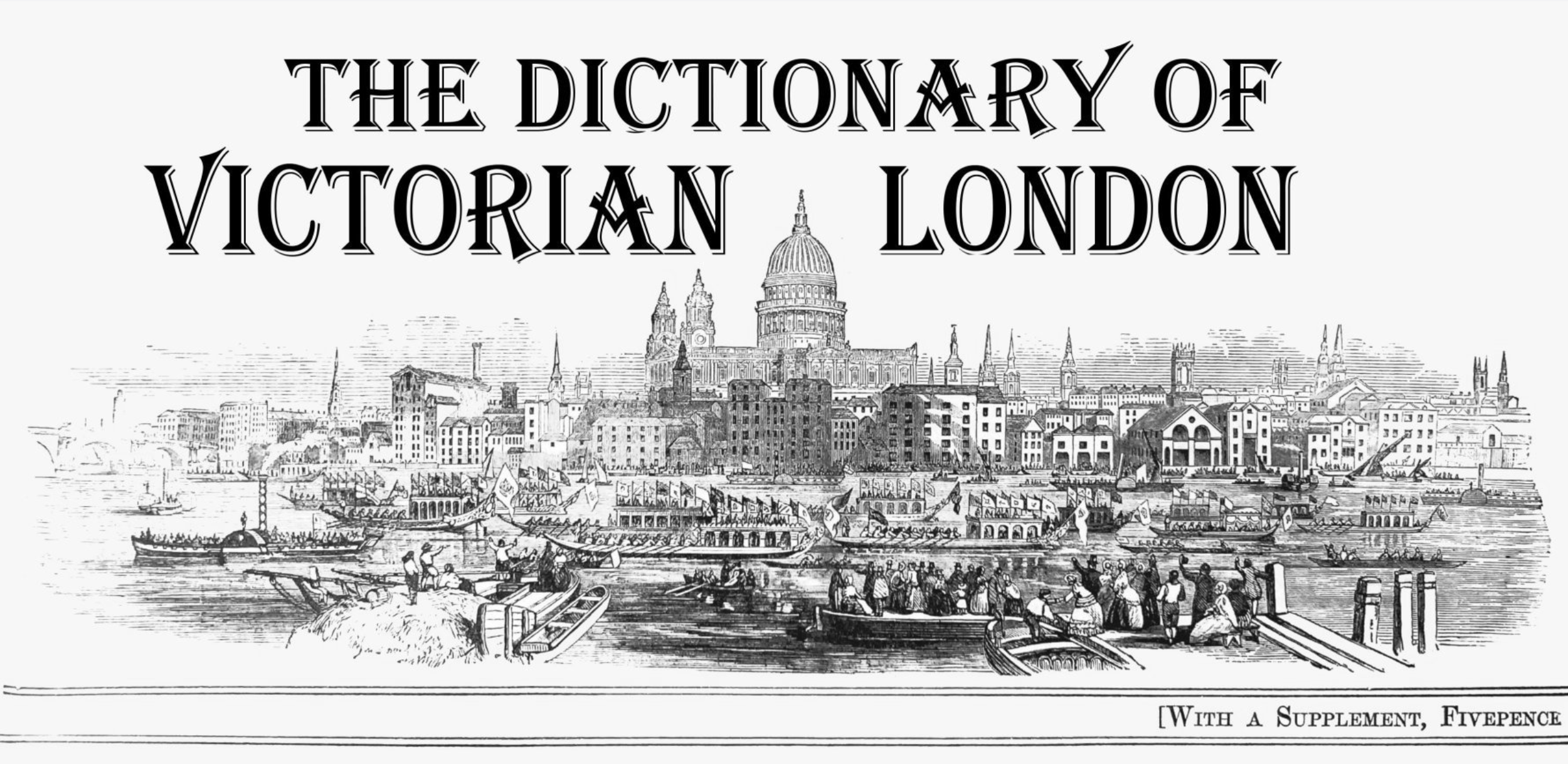
url: victorianlondon.org access: FREE!
The Dictionary of Victorian London is an encyclopedia created by historian Lee Jackson, who completed his PhD at Royal Holloway University, in conjunction with the Dickens Museum. The site contains several thousand pages of primary sources which reveal the social history of Victorian London, including nineteenth-century journalism, diaries, social investigation, guidebooks, cartoons and much more, which can be searched by keyword or through browsing the menu system.
10. Old Maps Online
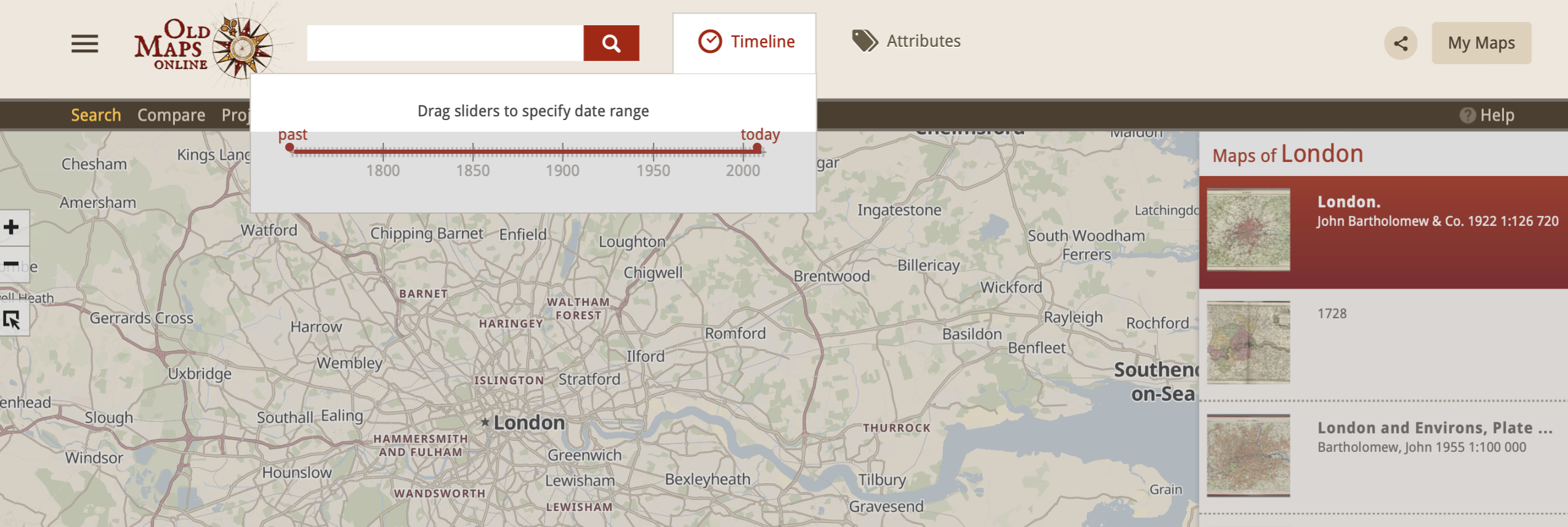
url: oldmapsonline.org access: FREE!
Old Maps Online is a website that allows you to browse and view historical maps from all over the world. The website has a large collection of maps, dating from the 16th century to the present day. You can search for maps by location, date, or publisher. You can also browse the maps by category, such as political maps, road maps, and topographic maps.
___
If you’d like to keep up to date on the latest digital humanities projects covering the long nineteenth century you can subscribe to our Twitter list. Previous #CLiCCreative posts by Dr Rosalind White are available here.

Thanks for including https://www.kent-maps.online/ – we’d love to hear what writers and researchers think of the site and how you’ve used it!